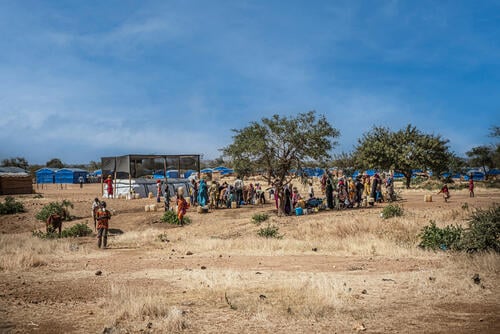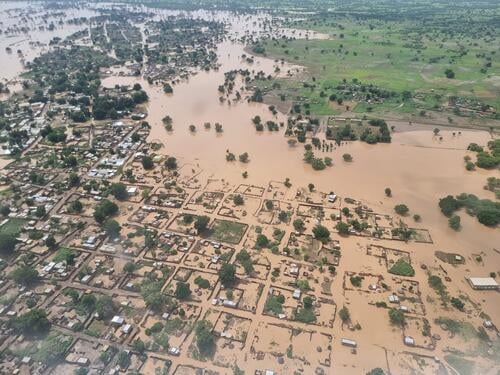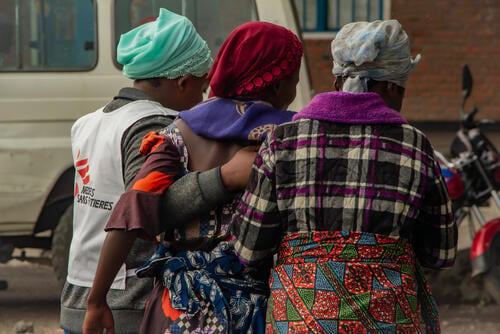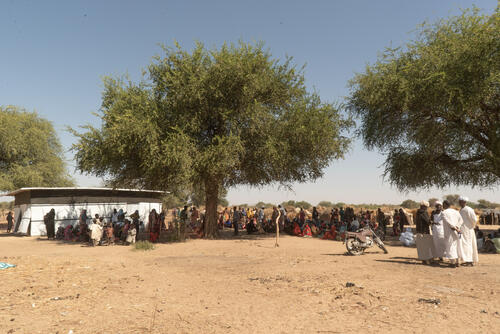- In refugee camps in eastern Chad housing people who have fled the conflict in Sudan, cases of hepatitis E are spreading.
- The spread is linked to poor water and sanitation in the camps, some of which have just one toilet for each 677 people.
- We call on humanitarian organisations to urgently improve sanitation and provide clean drinking water in all refugee camps in eastern Chad.
N’Djamena/Geneva – Hepatitis E is spreading through refugee camps in eastern Chad where more than 550,000 Sudanese fleeing the conflict in neighbouring Sudan have taken shelter, warns Médecins Sans Frontières (MSF). The spread of hepatitis E is being exacerbated by poor sanitation and a desperate shortage of clean water in the camps, which are scattered across Chad’s Ouaddai province.
“One year after the war erupted in Sudan, the plight of those who sought refuge in Chad remains dire,” says Erneau Mondesir, MSF medical coordinator in Adre. “This is a health risk not only for refugees but also for host communities.”
Hepatitis E is a highly contagious viral infection primarily transmitted through contaminated water. It poses a severe threat to people living in crowded and unsanitary environments and can be fatal. It causes inflammation of the liver and is particularly dangerous for pregnant women and people with chronic illnesses such as diabetes.
Without swift action to improve sanitation infrastructure and enhance people’s access to clean water, we risk witnessing a surge in preventable illnesses and unnecessary loss of life.Erneau Mondesir, MSF medical coordinator in Adre
MSF teams working in Adré, Aboutengue, Metché and Al-Acha camps have seen a surge in cases of hepatitis E, which are directly linked to inadequate sanitation and people’s limited access to clean water. To date, MSF has recorded a staggering 954 cases of hepatitis E among refugees, including 11 pregnant women; four patients have died. Most cases (469) have been in Adré camp, where 122,000 people are waiting to be relocated to more permanent refugee camps. Our teams have also recorded 292 cases in Aboutengue, 132 in Metche and 41 in Al-Acha camps.
In Adré camp, there is just one latrine for 677 people, while in Metché camp there is one latrine for 225 people.
“The situation is dire in all camps,” says Mondesir. “Without swift action to improve sanitation infrastructure and enhance people’s access to clean water, we risk witnessing a surge in preventable illnesses and unnecessary loss of life.”
MSF is currently providing more than 70 per cent of the drinking water available in Adré, Aboutengue, Metché and Al-Acha camps. Despite this, people are receiving just 11 litres of clean water per day – well below the 20 litres per person per day recommended for emergency settings.
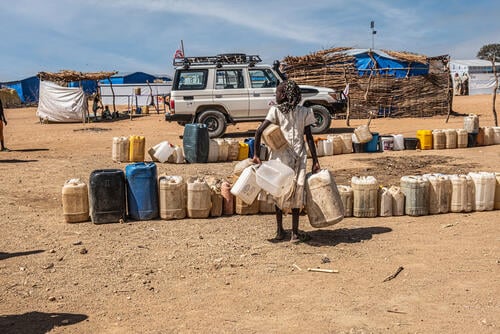
With the imminent arrival of the dry season, which usually lasts from April to May, high temperatures will increase the need for water, while the available aquifer will decrease in size.
“Despite our relentless efforts, the humanitarian response in eastern Chad has been hampered by insufficient funding for humanitarian organisations on the ground, leaving critical gaps in the provision of food, water and sanitation,” says Mondesir.
MSF teams have been providing lifesaving assistance to Sudanese refugees along the Chad border since May 2023. In response to the surge in hepatitis E cases, we are ramping up our health promotion activities, focusing in particular on pregnant women and new mothers, to increase awareness of how people can protect themselves from the disease and prevent it spreading further.
MSF calls on international donors and humanitarian organisations to urgently intensify their efforts to prevent an imminent health crisis, by improving sanitation and providing clean drinking water in all refugee camps and settlements in eastern Chad.



